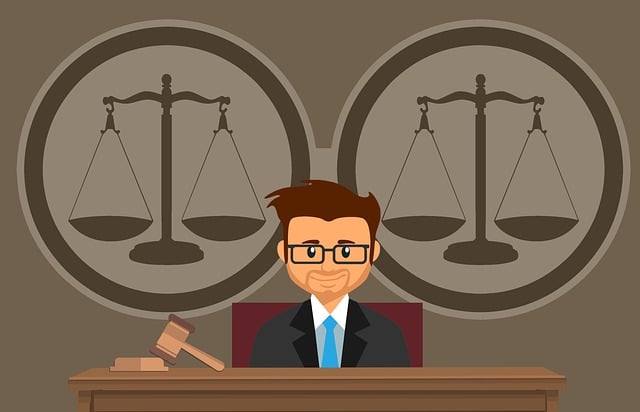Contempt legal strategies involve proactive interpretation and adherence to court orders, clear communication with representatives, and robust tracking systems to avoid severe consequences like fines or imprisonment. Effective strategies include enforcement actions, mediation, negotiation, and understanding the judge's powers, preventing non-compliance, reputational damage, and legal repercussions. Open communication with judges is crucial for successful strategy implementation and mutual understanding of legal orders.
Ensuring compliance with contempt court orders is a critical aspect of maintaining justice and order in our legal system. This comprehensive guide delves into the intricate world of contempt orders, providing insights on understanding and navigating these legal mandates. From recognizing potential non-compliance situations to employing effective communication strategies with judges, we explore powerful legal tactics to remain in compliance. Learn how to avoid harsh consequences and foster a respectful courtroom atmosphere by mastering these essential contempt legal strategies.
- Understanding Contempt Court Orders
- Legal Strategies for Compliance
- Common Non-Compliance Situations
- Consequences of Contempt of Court
- Effective Communication with Judges
Understanding Contempt Court Orders

Contempt court orders are legally binding decisions issued by a judge, usually as a result of someone failing to comply with a previous court order. Understanding these orders is crucial for individuals and organizations alike, as they can have significant implications. If an individual or entity fails to adhere to the terms set forth in a valid court order, they may be held in contempt, which can lead to severe penalties. These penalties can range from monetary fines to imprisonment, depending on the severity of the disobedience.
Knowing the nature of contempt legal strategies is essential for navigating such situations. Legal professionals often advise clients on how to interpret and fulfill court orders efficiently to avoid potential contempt charges. By proactively understanding their obligations, individuals can ensure compliance and potentially prevent future legal issues. This proactive approach involves meticulous attention to detail, clear communication with legal representatives, and a commitment to adhering to the letter of the law as outlined in the court order.
Legal Strategies for Compliance

Ensuring compliance with court orders is a critical aspect of maintaining justice and fairness. When an individual or entity fails to adhere to a court’s mandate, it can lead to severe consequences, including further legal repercussions and damage to their reputation. Legal strategies for compliance play a pivotal role in upholding the integrity of the judicial system.
One key approach involves proactive communication with legal representatives to clarify order requirements and potential challenges. Additionally, developing contingency plans to anticipate obstacles and having a robust system for tracking and fulfilling obligations can significantly enhance adherence. In cases of intentional non-compliance, legal strategies may include negotiating sanctions, seeking enforcement actions, or even pursuing contempt charges, which carry significant weight in ensuring future compliance.
Common Non-Compliance Situations

Non-compliance with court orders can arise from a variety of situations, often rooted in misunderstandings or intentional defiance. Common scenarios include failure to appear for scheduled hearings, non-payment of fines or restitution as ordered, and willful disobedience to specific mandates. Businesses may also find themselves in contempt if they fail to adhere to regulations or injunctions, such as environmental or labor laws.
Effective legal strategies for addressing these issues involve a mix of enforcement actions and conciliatory approaches. Courts can levy sanctions, including fines, jail time, or both, to incentivize compliance. Alternatively, mediation and negotiation can help resolve contumacious behavior by facilitating dialogue between parties and finding mutually agreeable solutions. Utilizing contempt legal strategies requires a nuanced understanding of the court’s authority and the specific circumstances of each case.
Consequences of Contempt of Court

The consequences of contempt of court can be severe and far-reaching, impacting both individuals and organizations. When a party fails to comply with a court order, it demonstrates a lack of respect for the judicial process and can lead to numerous legal repercussions. These may include monetary fines, imprisonment, or both, as determined by the presiding judge. The severity of the punishment often depends on the nature and willfulness of the contemptuous act.
Additionally, those found in contempt may face long-term implications, such as damage to their reputation, loss of professional licenses, or even barriers to future legal proceedings. Implementing effective contempt legal strategies is crucial for parties to avoid these consequences. This involves ensuring clear understanding and compliance with court orders, seeking clarification when needed, and taking proactive steps to fulfill obligations promptly to maintain integrity within the judicial system.
Effective Communication with Judges

Maintaining open and respectful communication with judges is a cornerstone of effective contempt legal strategies. When navigating complex legal issues, clear articulation of arguments and evidence can significantly influence the court’s decision-making process. Attorneys or individuals representing themselves must ensure their messages are conveyed concisely and accurately, demonstrating an understanding of both the facts and applicable laws. This proactive approach fosters a collaborative environment, allowing for more effective resolution of contempt matters.
Judges appreciate when parties demonstrate a willingness to engage in meaningful dialogue. Presenting well-structured arguments, addressing concerns directly, and providing relevant case law or legal precedents can build a compelling case. Effective communication also involves actively listening to the judge’s inquiries, ensuring that every aspect of the order is thoroughly understood, and addressing any ambiguities promptly. Such an approach not only enhances the chances of adhering to the court’s orders but also cultivates mutual respect within the legal process.






